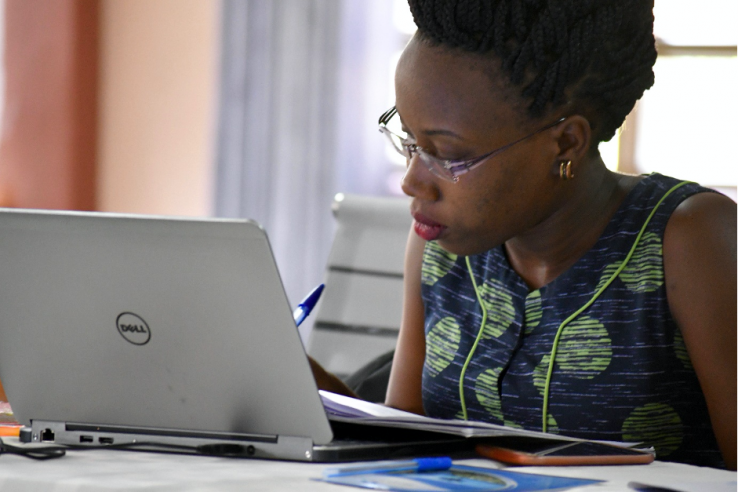J-PAL Africa Conducting Experimental Research Course

Course overview
In partnership with Impact Evaluation Lab at the ESRF and Busara Center, we will hold a five-day academic workshop on conducting randomized evaluations aims to strengthen the knowledge and further develop the good practices of participants who are already well-versed in the methodological foundations of impact evaluations.
Lectures and case studies will use real-world examples from Africa with a variety of themes, including labor, gender, finance, and governance. The course will review the benefits and methods of randomization, how to calculate an appropriate sample size using power calculations, and ways to mitigate common threats and pitfalls to the validity of a randomized evaluation. It will also cover the importance of a needs assessment and a theory of change, and how to measure outcomes effectively—tools that are critical for all program evaluations.
Applications are closed.
Please reach out to us if you would like to notified when applications open for the 2025 edition of this course at [email protected].
Who is a good candidate for this course?
The course is designed for PhD students and researchers in economics (or a closely related field) based at universities in sub-Saharan Africa with an interest in using randomized evaluations to evaluate programs and policies.
Not sure if you’re the right fit? Contact the J-PAL Africa training team at [email protected] for more information.
Course format
J-PAL affiliated professors and senior staff from both J-PAL and the Impact Evaluation Lab will lead interactive lecture sessions on how to design and implement a randomized evaluation, as well as share guidance on writing grant proposals.
Participants will engage in small group discussions with J-PAL staff and fellow participants working in similar areas, providing opportunities to collaborate and network with their peers. By working through case studies and examples in small groups with the support of staff, participants will solidify new lecture concepts and discuss how they might apply these skills to their own work.
The course will also include time for participants to work on their own grant proposal for a randomized evaluation (or an exploratory grant that will lead to a randomized evaluation). After the course, participants will be paired with a mentor from the J-PAL research network to further support the development of their grant proposal.
Key information
How to apply: You can complete your application here. The application deadline is 3 May, 2024. As spots in the course are limited and we will review applications on a rolling basis, we encourage you to apply as soon as possible.
Dates: The course will run for 4.5 days, starting on Thursday 4 July and ending at lunchtime on Tuesday 9 July. We will take a day’s break on Sunday 7 July. Our course is run over these dates to allow participants to attend the CEGA Africa Evidence Summit which will follow immediately after the course from 10-11 July. This conference is free to attend and will bring together East and West African scholars, U.S.-based faculty, policymakers, and practitioners to discuss the latest research findings on economic development and poverty alleviation in sub-Saharan Africa. We encourage you to attend if possible!
Admissions criteria: This course is open to Sub-Saharan African nationals who already hold, or are currently pursuing a PhD in economics, public policy, development, or related fields. Participants should understand the basics of randomized control trials, have familiarity with Stata or R, and have an initial idea for a randomized evaluation that they would like to explore.
Costs: This course is free of cost, but participants are expected to cover their own travel and accommodation expenses. J-PAL Africa has limited funding to support the travel and accommodation costs of those participants who are unable to attend without financial support.
Contact: Please contact our training team at [email protected] with questions about applying or details about the course.
Looking for a course in French? J-PAL Europe is hosting a similar course in French for African researchers from 2-5 July 2024 in Rabat, Morocco. This edition follows two similar summer schools which took place respectively in July 2022 in Abidjan (Côte d’Ivoire) and in July 2023 in Rabat (Morocco). Read more and apply here.
Looking for a more foundational course on randomized evaluations? Every J-PAL regional office offers the Evaluating Social Programs course annually, which is tailored to the needs of policymakers, practitioners, and researchers from NGOs, governments, international organizations, private sector companies, and foundations. For further information on J-PAL Africa’s 2024 edition of Evaluating Social Programs which will take place in Accra, Ghana, please refer to our website.